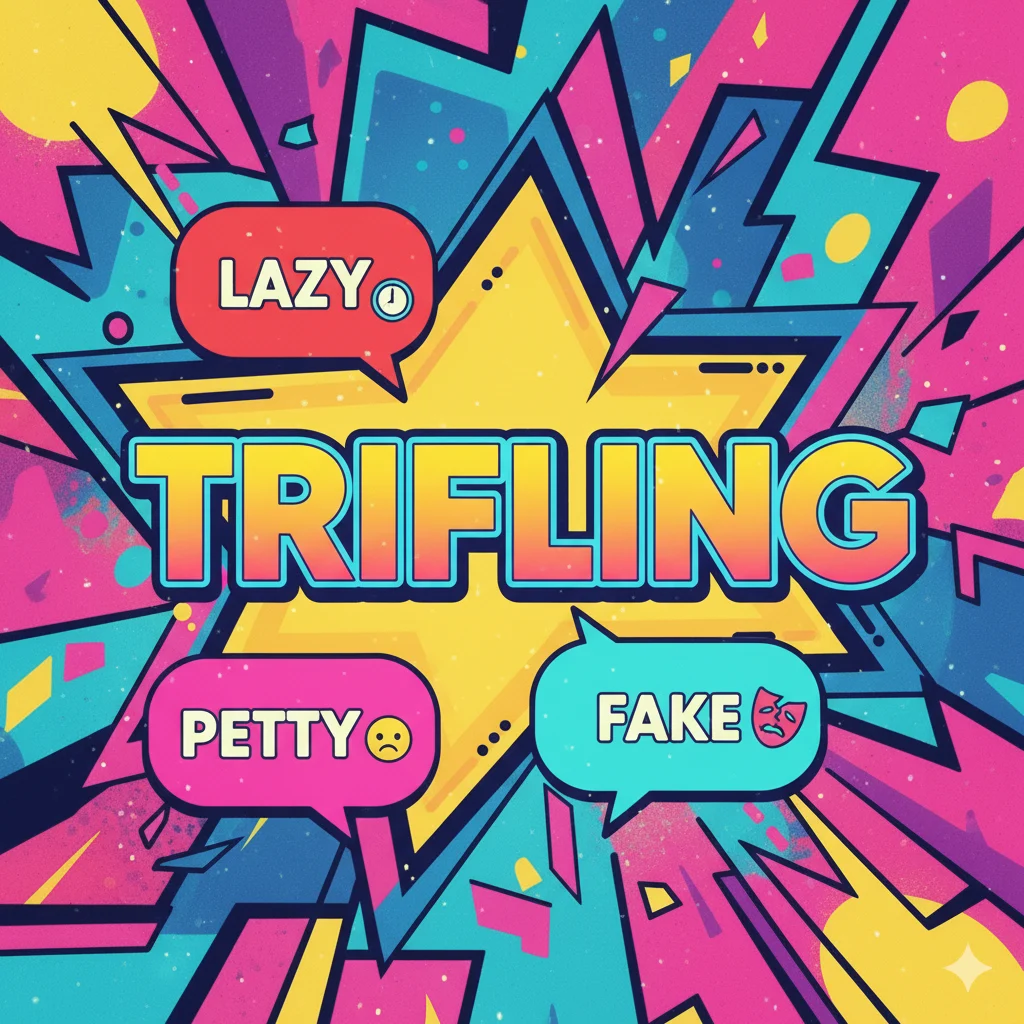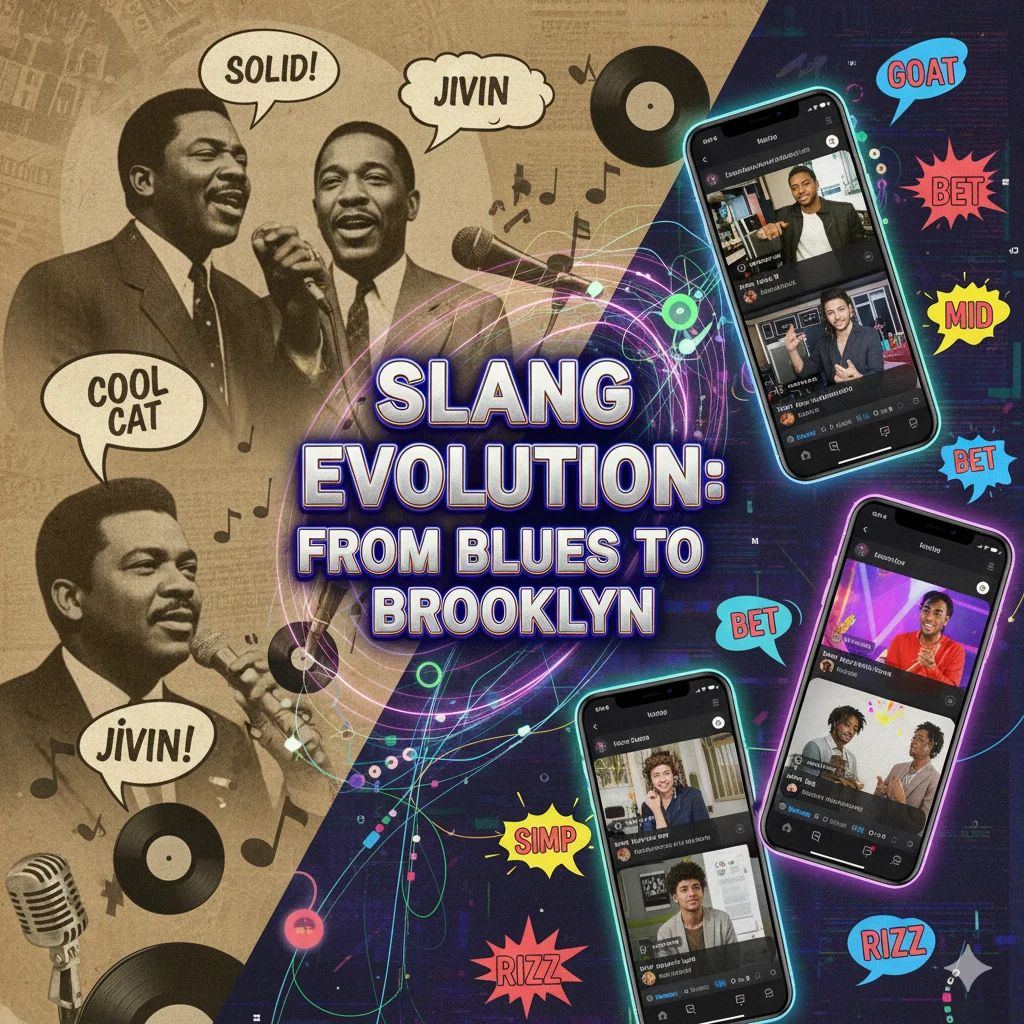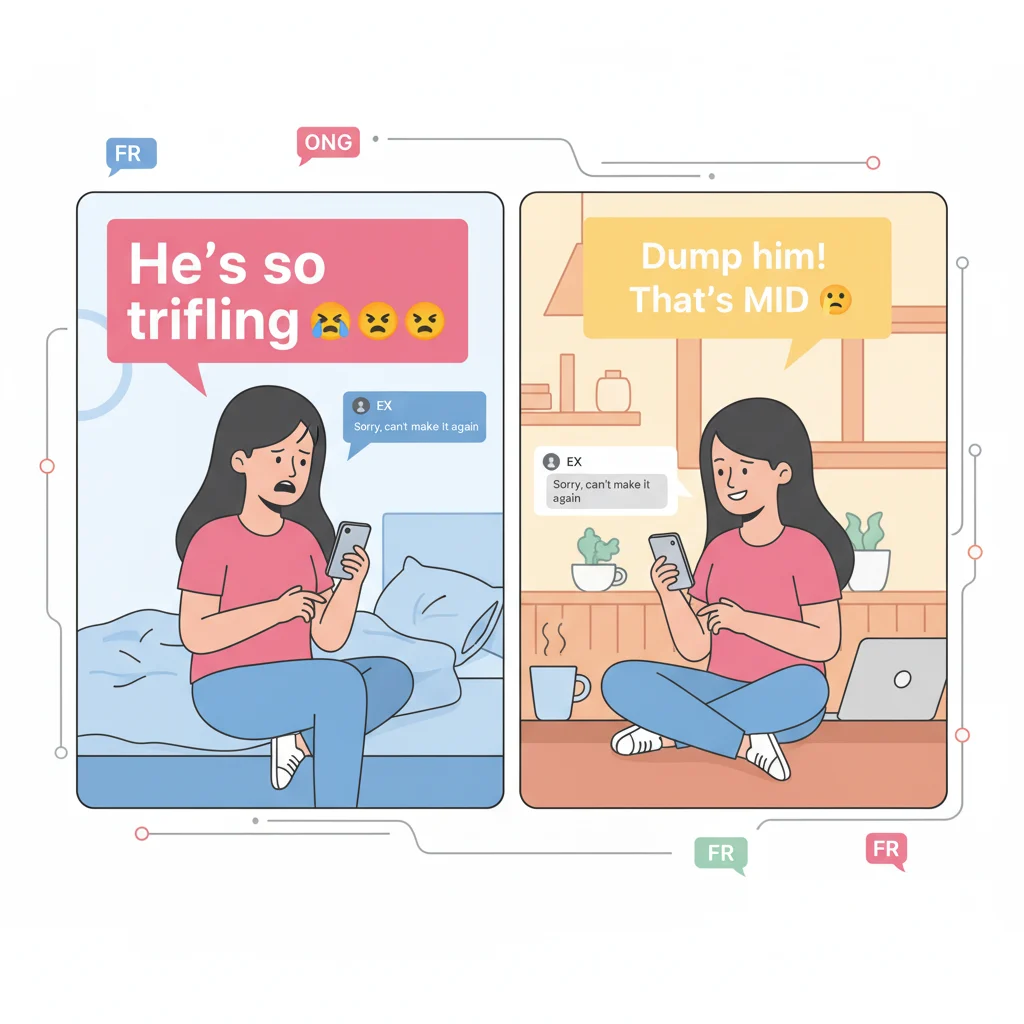You’ve probably heard someone say, “She’s so trifling,” or “Don’t act trifling like that!”—and wondered what it really means. The slang term “trifling” (often pronounced “triflin’”) has been around for generations, especially in African American Vernacular English (AAVE), but it’s recently made a comeback through social media, memes, and pop culture.
So, what does “trifling” mean in slang? And why do people use it to describe someone’s behavior?
This comprehensive guide breaks down the slang meaning of “trifling,” its origins, modern usage, and examples so you can understand the nuance behind one of the most expressive words in English slang.
What Does “Trifling” Mean in Slang?
In slang, “trifling” means lazy, dishonest, petty, or worthless—someone or something that lacks effort, seriousness, or respect.

If you call a person “trifling,” you’re saying they behave in a way that’s irresponsible, disrespectful, or generally not worth your time. It’s often used to describe someone who plays games in relationships, doesn’t follow through, or acts fake.
Examples:
- “He’s so trifling—always lying and borrowing money.”
- “Stop being trifling and take responsibility.”
- “That was a trifling excuse.”
Essentially, it’s a strong word for someone who can’t be trusted or doesn’t act right.
The Origin and History of “Trifling”
The word “trifle” dates back to Middle English, meaning something of little importance. From there, “trifling” evolved into describing anything insignificant, small, or not worth attention.
But the slang version of “trifling”—as it’s known today—has deep roots in African American Vernacular English (AAVE), dating back to the early 20th century.
In that context, “trifling” was often used to describe people who were unreliable, lazy, or manipulative. Over time, the term spread through blues music, gospel lyrics, and everyday speech.

Classic Example:
In 1920s blues songs, artists would sing about “triflin’ women” or “triflin’ men,” referring to unfaithful partners or those who wasted time and energy.
Fast-forward to today, and the term still carries that same emotional punch—it’s a callout word that expresses frustration with someone’s poor attitude or shady behavior.
How “Trifling” Is Used in Modern Slang
In modern slang, “trifling” has expanded beyond relationships. It can describe people, actions, or even situations that are disappointing or shady.

1. Describing People
When someone is “trifling,” they’re unreliable, fake, or untrustworthy.
“She promised to help, but ghosted me—so trifling.”
2. Describing Actions
A trifling act is something small-minded or disrespectful.
“Taking credit for someone else’s work? That’s trifling.”
3. Describing Situations
Sometimes, people use “trifling” to describe things that feel unfair, annoying, or messy.
“The Wi-Fi cutting off during my meeting is so trifling.”
Across all cases, the tone usually mixes disappointment, sarcasm, and a little attitude.
“Trifling” in Pop Culture and Social Media
The term “trifling” has stayed relevant thanks to music, TV, and internet slang. It appears frequently in hip-hop lyrics, Black Twitter, and TikTok skits.
Music and Film
- In Destiny’s Child’s song “Bills, Bills, Bills,” Beyoncé sings:
“You triflin’, good for nothin’ type of brother.”
Here, “triflin’” means useless, irresponsible, and lazy—especially in relationships. - In Tyler Perry movies and Black sitcoms, “trifling” is often used during heated moments to call out bad behavior.
Social Media Use
On TikTok, “trifling” has become a humorous callout term. People use it to roast friends, talk about dating drama, or point out petty situations.
Example TikTok caption:
“When he says he’s busy but still views your story 😒 #trifling”
The word continues to thrive because it’s emotionally charged, funny, and relatable.
The Cultural Power Behind “Trifling”
To understand “trifling,” you have to appreciate its cultural weight.
In African American communities, the word is more than just slang—it’s a social judgment that calls out someone’s integrity (or lack thereof). It’s often used with humor, but it can also carry genuine disappointment or disgust.
Being called “trifling” by someone you respect means you’ve seriously messed up—it’s like saying, “You’re not worth the energy.”
At the same time, people sometimes use it playfully among friends, especially when teasing each other for minor things.
“You ate the last cookie? You so trifling.” 😆
So, tone matters—a lot.
Examples of “Trifling” in Conversations
Here’s how people actually use the word today:
- “She’s trifling for showing up late again.”
- “That dude is so trifling; he ghosted me after borrowing $20.”
- “Not washing your dishes all week? Trifling behavior.”
- “This weather is trifling—it was sunny ten minutes ago!”
- “You trifling if you don’t reply but still online.”
As you can see, trifling can be serious or funny—it’s all about the vibe.
Synonyms and Related Slang
Depending on the situation, “trifling” can be swapped for several slang or standard terms:
- Lazy
- Fake
- Petty
- Messy
- Bum behavior
- Low-effort
- Useless
In social media slang, similar vibes show up in words like “dusty,” “shady,” “broke energy,” or “playing games.”
Each one expresses frustration with someone who’s not putting in effort or acting respectfully.
Why “Trifling” Has Stood the Test of Time
Unlike many slang terms that disappear fast, trifling has remained popular for nearly a century because it’s emotionally precise.
It communicates disappointment and attitude in one word. Saying “You’re trifling” hits harder than “You’re lazy” or “You’re wrong.” It implies a mix of moral failure and irritation.
That’s why it keeps resurfacing in new generations—its tone fits both humor and truth.
How to Use “Trifling” the Right Way
If you’re thinking about using “trifling” in a conversation or post, remember these quick tips:
✅ Use it for attitude, not hate. It’s playful in friendly circles, but insulting if used harshly.
✅ Match your tone to context. Saying “You’re trifling” jokingly is fine; saying it seriously can sound cutting.
✅ Understand its roots. Respect that the term comes from Black vernacular culture—it’s part of a larger linguistic heritage.
✅ Keep it conversational. Trifling works best in casual, spoken-style English or social captions.
The Grammar of “Trifling”
Even though it’s slang, “trifling” follows normal grammar rules. It’s an adjective describing a person or thing.
- Correct: “He’s trifling.”
- Incorrect: “He triflinged.”
Sometimes you’ll see it stylized as “triflin’”—that’s just a phonetic version showing informal speech.
Trifling in Memes and Humor
In memes, “trifling” often appears with reaction images or videos that exaggerate laziness or betrayal.
Example captions:
- “When you say you’ll clean tomorrow and it’s already next week 😭 #trifling”
- “He really texted his ex again? TRIFLING.”
These uses help keep the term alive, bridging its serious roots with modern internet humor.
FAQs About “Trifling” Slang
Q1. What does trifling mean in slang?
It means lazy, fake, untrustworthy, or petty—someone not worth your respect or time.
Q2. Is trifling a bad word?
Not exactly, but it’s negative. It’s a mild insult used to call out low-effort or shady behavior.
Q3. What’s the difference between trifling and petty?
Petty usually means small-minded; trifling implies laziness or irresponsibility.
Q4. Can trifling be used jokingly?
Yes! Among friends, it’s often playful: “You trifling for not sharing that snack.”
Q5. Where does trifling come from?
It comes from AAVE and older English, meaning “of little value” or “worthless.”
Conclusion: Why “Trifling” Still Matters in Modern Slang
“Trifling” is one of those rare slang words that has history, attitude, and staying power. It expresses frustration, humor, and judgment all at once. Whether you’re calling out a fake friend, lazy coworker, or shady date, “trifling” says it all.
And beyond slang, it carries cultural respect—it reminds us that words rooted in authenticity and expression never truly fade away.
So next time someone’s acting up?
Just shake your head and say, “That’s trifling.”




